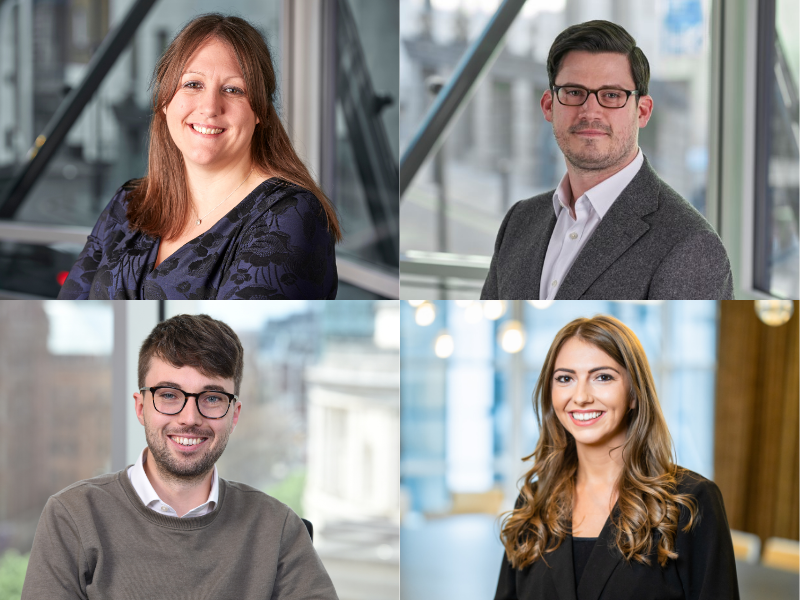Shaun Jones is the legal industry’s Lego Man. He is many other things as well of course but it’s the Lego which sparked Legal Geek’s interest.
You may have noticed as much from the Lego figures featuring in our Lawyers Who Code series [see below if not] – it’s fair to say we have a thing about those famous coloured bricks.
So too does Jones, as do millions of others around the world.
And it’s that interest in Lego which underpins the innovation-enabling sessions which he is successfully bringing into the legal industry one boardroom at a time.
Jones is a Brand and Innovation consultant on a mission to help companies foster a culture of innovation to deliver real-world change within their organisations.
https://www.legalgeek.co/read/lawyers-code-partner-turned-coder/
His go-to method of achieving these results is through Lego and the Lego Serious Play methodology. But how does he do it?

The best duck in the world?
“Well, I start by asking clients to build the best duck in the world in 30 seconds,” Shaun explains.
“If you ask someone to draw a duck and then say ‘tell me something about that duck?’, they might say ‘it’s a big duck or a small duck, or a yellow duck’. However, if you ask someone to build a duck they are more likely to tell you a story about it, because building something (in effect prototyping your idea) enables you to expand your imagination, think more laterally and express your ideas more easily. For example, it will now be a duck which is low to the water and can swim fast.”
“This is a typical warm-up exercise and helps to get people into a creative flow, connecting their hands and brain, and enabling them to think in a different way.”
From this point on, Jones’s sessions will go in different directions depending on the client’s fundamental objectives. The quality of the models which participants build is not the most important factor. It’s about building something that can act as a visual metaphor, around which stories and narratives can be developed.
But how does this lead to fostering innovation in a business environment?
As Shaun explains, it’s often about de-mystifying what innovation actually is:
“When you say something has to be innovative people immediately jump to the idea that something has to be space-age. But innovation comes in many forms and can be as simple as someone pointing out that we need to speak to our clients more frequently to understand their needs, just as much as it covers colonising the moon.
“It’s also common for companies to focus on the ‘day-to-day’ and not give themselves the time or tools to think creatively about new solutions and what innovation looks like for them and their clients. This can especially be the case where one individual is given the responsibility for ‘innovation’ in an organisation – as ironic as that sounds – ultimately innovation is everyones responsibility, especially in this increasingly changing and technology-enabled landscape.”
“So in these sessions, I’m focusing on encouraging participants to share their ideas, however small and insignificant those ideas might feel, because they are often the ones that can make the biggest or most immediate impact; a process change or a new best practice example.”
Lego works as the perfect facilitation tool for people accustomed to internalising their thoughts and ideas as it enables them to visualise, express and share those ideas with colleagues.
Jones adds: “As adults we try and figure out a lot of complex stuff inside our heads – and expressing those thoughts and ideas in a way others will clearly understand can be challenging. As children we used our hands a lot to communicate ideas and tackle new challenges. As adults we don’t do that nearly as much, that is with the exception of those working in the creative industries. When we build objects we actively connect the hands and the brain and allow ourselves to think differently.”
Jones became a Lego Serious Play facilitator after participating in a session at Google and witnessing the power of those little plastic bricks held even in an adult environment. Shortly after he underwent an intensive five-day facilitators course working with Lego Serious Play bricks “morning, noon and night” under the instruction of a Danish ex-army officer and one of the original proponents of the Lego Serious Play methodology.
And his consultancy work now reflects the results-driven nature of his previous employment with every session tailored to a client’s core objectives.
There may be a lot of Lego involved in Shaun’s sessions, but they are far from free play. In fact, they are designed to be challenging and unlock each participant’s creative capacity.
“The sessions are intentionally pacy, with each build ranging from 1 to 5 minutes. I give participants enough time to express their ideas, but not so much time that they overthink and produce expected or ‘safe’ results.”
“The best creative thinking comes from setting constraints. Having too much time means people often over intellectualise and rely less on their gut instincts, therefore limiting their capacity to produce unexpected and novel ideas. But give them shorter time frames and they become more fanciful in their thinking and therefore more creative and innovative, something every organisation is striving to achieve.”


